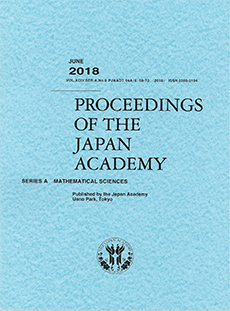Abstract
Two seemingly unrelated problems are intimately connected. The first is the equsingularity problem in $\mathbf{R}^2$: For an analytic family $f_t:(\mathbf{R}^2,0)\to (\mathbf{R},0)$, when should it be called an ``equisingular deformation''? This amounts to finding a suitable trivialization condition (as strong as possible) and, of course, a criterion. The second is on the Morse stability. We define $\mathbf{R}_*$, which is $\mathbf{R}$ ``enriched'' with a class of infinitesimals. How to generalize the Morse Stability Theorem to polynomials over $\mathbf{R}_*$? The space $\mathbf{R}_*$ is much smaller than the space used in Non-standard Analysis. Our infinitesimals are analytic arcs, represented by fractional power series. In our Theorem II, (B) is a trivialization condition which can serve as a definition for equisingular deformation; (A), and (A$'$) in Addendum \refAdd1, are criteria, using the stability of ``critical points'' and the ``complete initial form''; (C) is the Morse stability (Remark 1.6).
Citation
Tzee-Char Kuo. Laurentiu Paunescu. "Equisingularity in $R^2$ as Morse stability in infinitesimal calculus." Proc. Japan Acad. Ser. A Math. Sci. 81 (6) 115 - 120, June 2005. https://doi.org/10.3792/pjaa.81.115
Information





